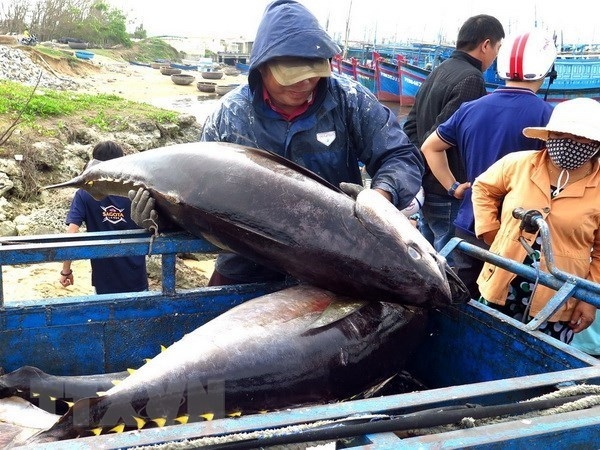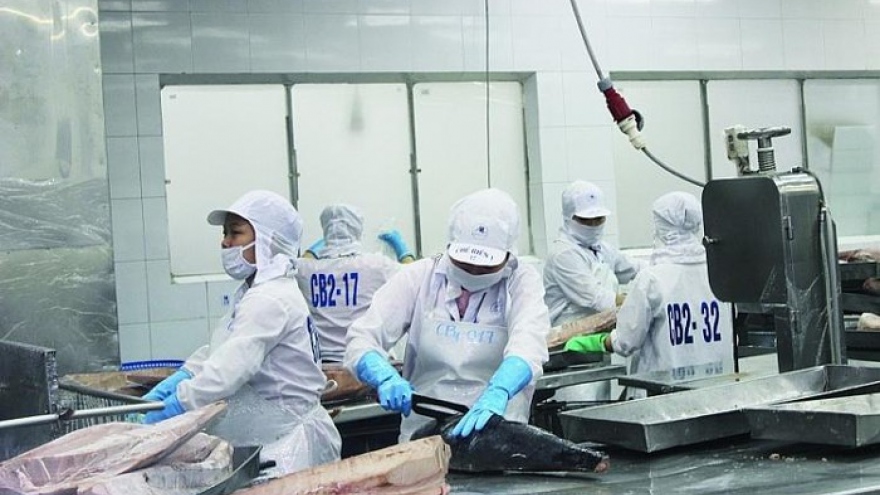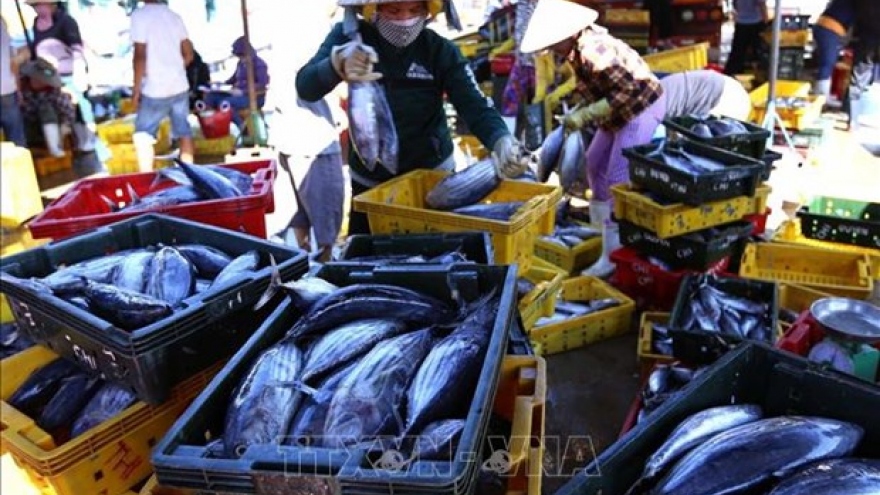Egypt emerges as promising market for Vietnamese canned tuna
Vietnam’s tuna exports to the Middle East and Africa have seen positive signs since the beginning of the year despite declines in overall seafood exports in the face of COVID-19, First Secretary and Head of the Trade Office at the Vietnamese Embassy in Egypt Nguyen Duy Hung said on October 25.
The pandemic has taken a heavy toll on Vietnam’s exports of seafood to the Middle East and Africa, he told the Vietnam News Agency (VNA)’s reporter in the Egyptian capital of Cairo.
Data from the General Department of Vietnam Customs shows that seafood exports to Vietnam’s three largest markets in the region - Israel, the United Arab Emirates (UAE), and Egypt - plunged during the first nine months of 2020. Seafood shipments to Egypt nosedived 35.6% year-on-year to US$23.5 million, Hung said, compared to an 8.7% decline in overall exports to the country.
He attributed the steep decline to weakening demand for imported food in general because of measures taken by the Egyptian Government to curb the spread of the coronavirus, which have included night-time curfews, bans on gatherings, and closures of restaurants. Egypt’s policies limiting imports and boosting exports to bridge the trade deficit this year also represent challenges for Vietnamese seafood exporters, he added.
Vietnam’s tuna shipments, particularly canned tuna, have experienced decent growth over the last several years. According to a report from the Vietnam Association of Seafood Exporters and Producers (VASEP), canned tuna exports accounted for 2.29% of Vietnam’s total tuna exports to Egypt, or US$11.9 million, in the first three quarters of this year. The share was the second-highest in the Middle East and Africa, after only Israel.
Egypt imported US$160 million worth of tuna last year, with 89.5%, worth US$145 million, coming from Thailand. Vietnam was second but with just 5.6% of the market share, or US$9 million, Hung continued, so possesses major potential to increase tuna exports to the country, as COVID-19 has made it evident that importers must diversify their supply sources.
Such trends are a “golden” opportunity for Vietnamese enterprises to gain a stronger foothold in the market, he noted.





